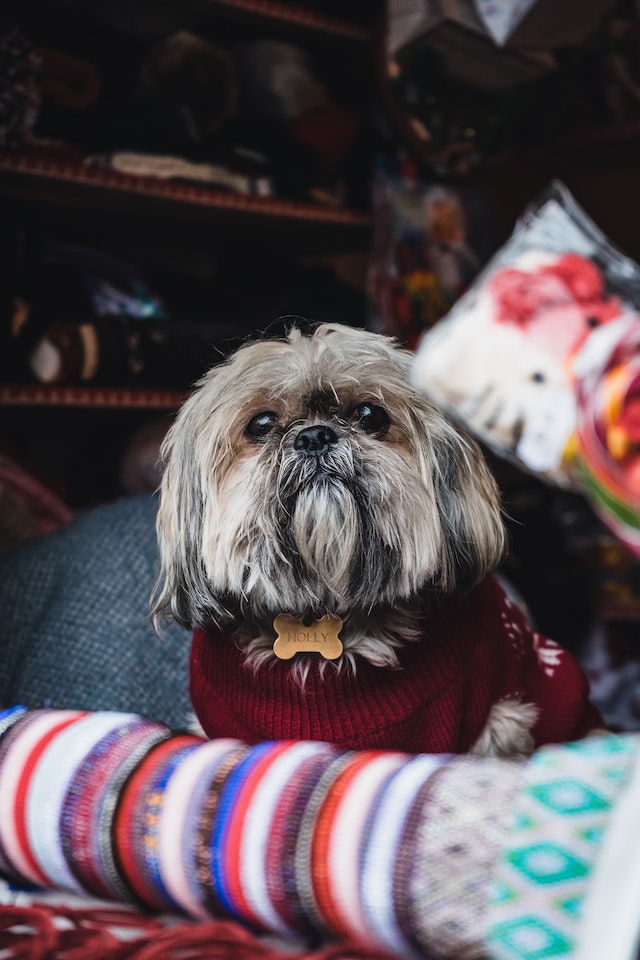Winter Care
Winter care for your dog is very important for their physical & mental health. You can follow these tips to get started & always consult your vet for exact steps on how you should care for your little pal:

- Keep your dog warm and dry. In cold weather, it’s important to keep your dog warm and dry to prevent hypothermia and frostbite. If your dog spends a lot of time outside, make sure they have a warm, dry place to shelter from the elements. If your dog is small or has short hair, consider getting them a coat or sweater to wear when they’re outside.
- Limit your dog’s time outside. In very cold weather, it’s best to limit your dog’s time outside to just a few minutes at a time, especially if they’re not used to the cold. If your dog needs to go outside to do their business, try to take them out on a leash so you can keep a close eye on them.
- Protect your dog’s paws. Snow, ice, and salt can all be harmful to your dog’s paws. To protect their paws, consider using dog boots or paw wax to create a barrier between your dog’s paws and the ground. You should also wipe your dog’s paws with a damp cloth after they come inside to remove any ice, salt, or other debris that may be stuck to their paws.
- Keep your dog hydrated. In the winter, it’s easy for dogs to become dehydrated because they’re less likely to drink water when it’s cold outside. To make sure your dog stays hydrated, make sure they always have access to fresh, clean water. If your dog is reluctant to drink cold water, try warming it up slightly or adding some broth to make it more appealing.
- Keep an eye on your dog’s weight. In the winter, it’s easy for dogs to gain weight because they’re less active and may be eating more to stay warm. To make sure your dog stays at a healthy weight, monitor their food intake and make sure they’re getting enough exercise. If you’re not sure how much your dog should be eating, consult your veterinarian for guidance.
In conclusion, by following these tips, parents can feel confident that their children and dogs can coexist safely. Regular supervision and education can go a long way in preventing any accidents or incidents between dogs and children. With the right precautions and a little bit of patience, families can enjoy the many benefits of having a dog in their lives.